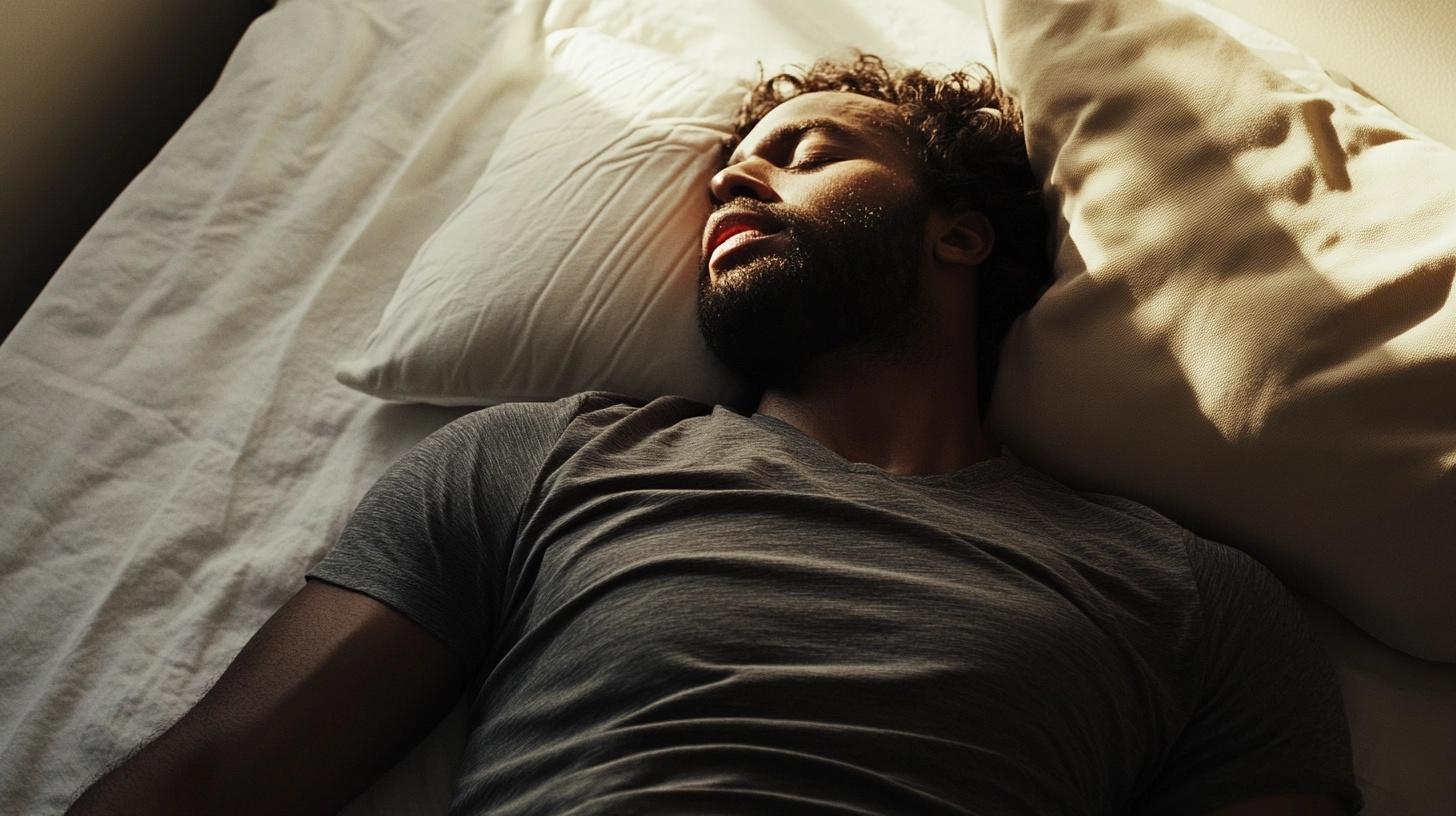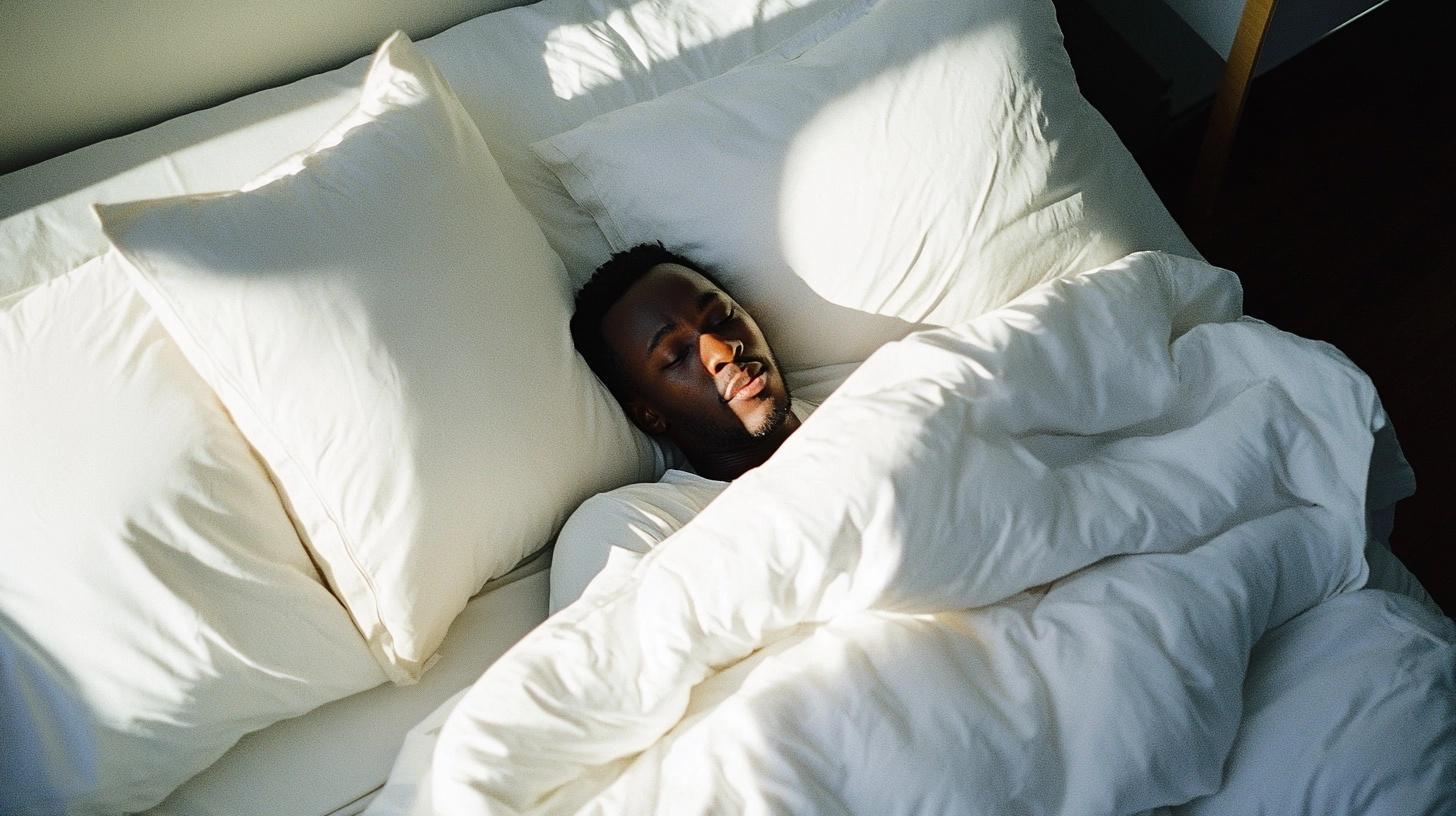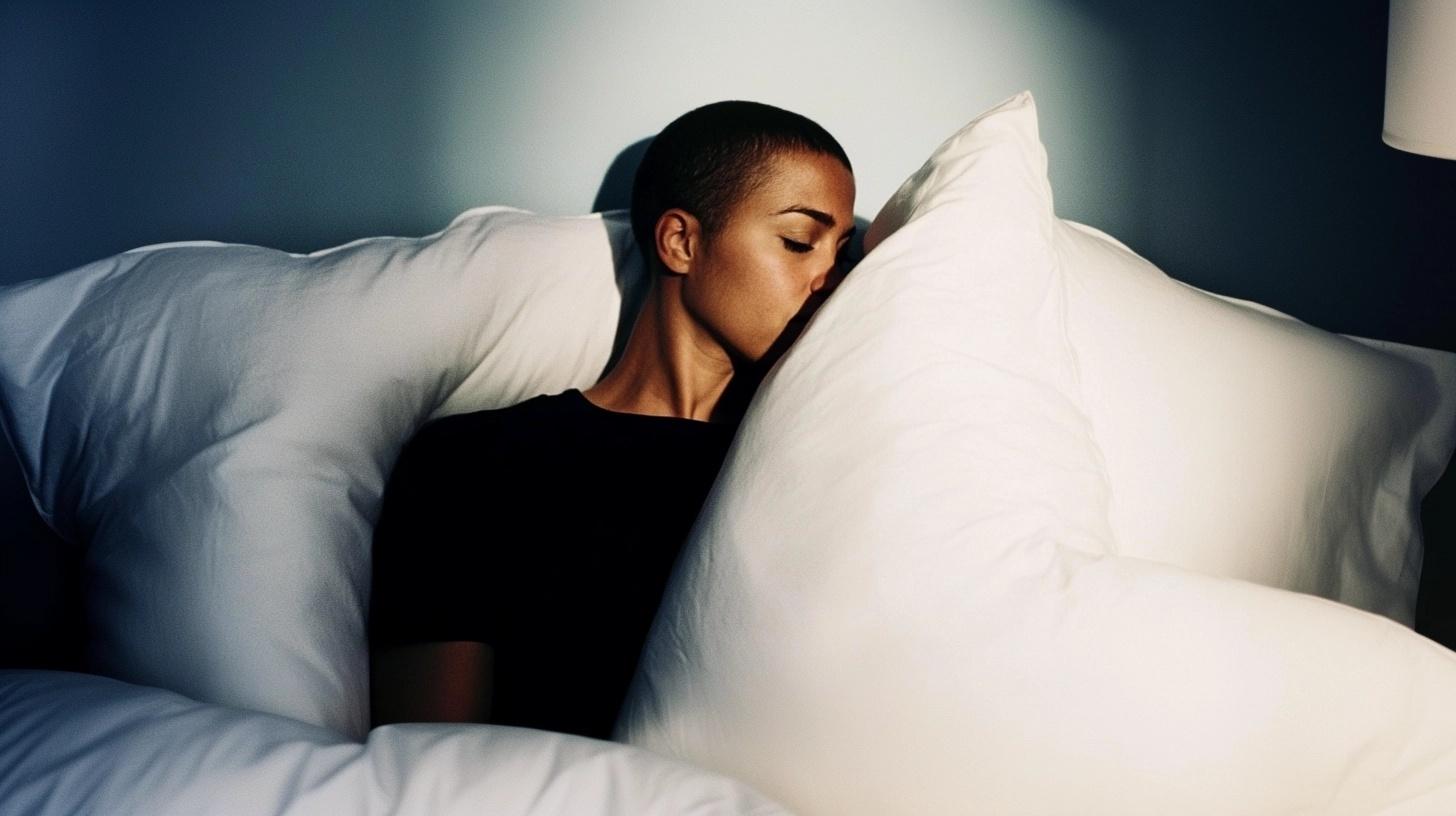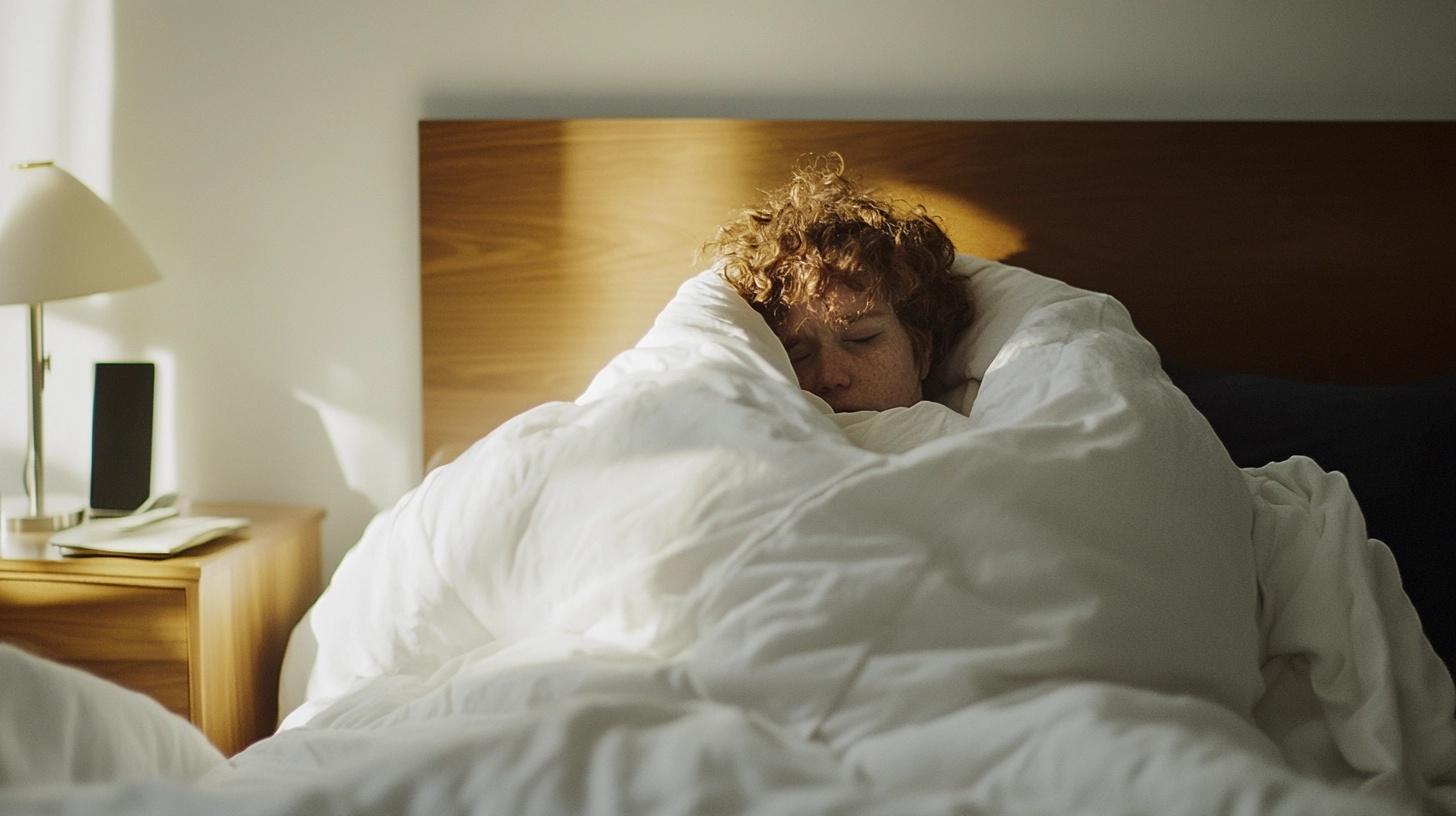These States Cough the Most During Sleep: Get real-time insights with Cough Radar
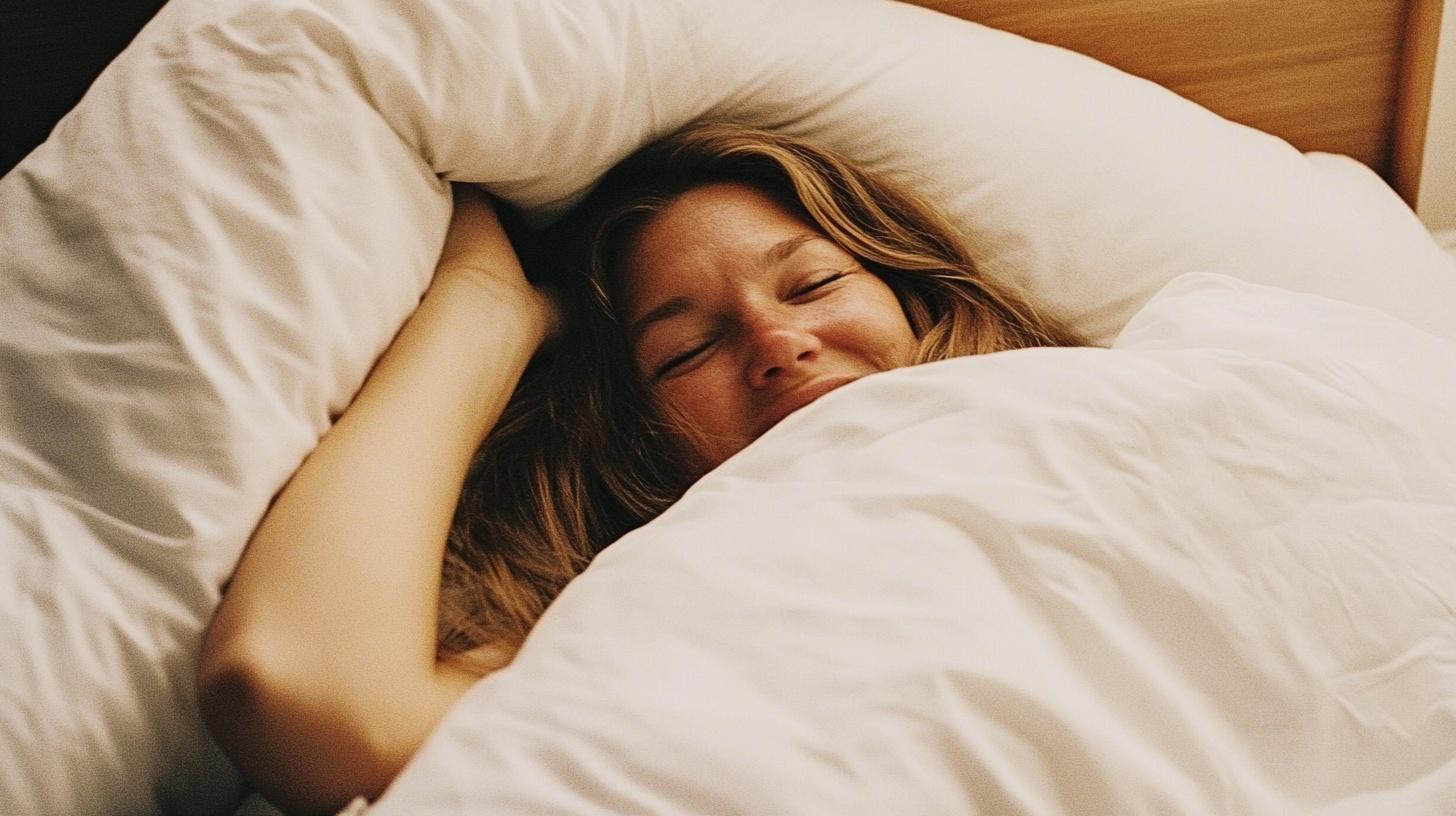
We put our groundbreaking tool, Cough Radar, to work and it gave us some fascinating insights on nightly coughing trends across the United States in December 2023. While Vermont was peacefully asleep, Wyoming seemed plagued by increased coughing throughout the night.
Join us as we unveil the ranking of states by nightly cough occurrences and explain how the community health insights offered by this thrilling new feature help our users.
Elevated coughing trends across 50 US. states
Nighttime coughing has become a widespread concern across the US due to the rise in flu, COVID-19, and RSV cases. To understand this issue, Sleep Cycle analyzed millions of nights of sleep data nationwide in December 2023. Our goal was to categorize the levels of nighttime coughing by state and recognize its potential impact on sleep quality.
We have ranked states by their average coughing rate, using thresholds of 0.9 as high, 0.75 as elevated, and below 0.75 as normal levels. Here are our findings:
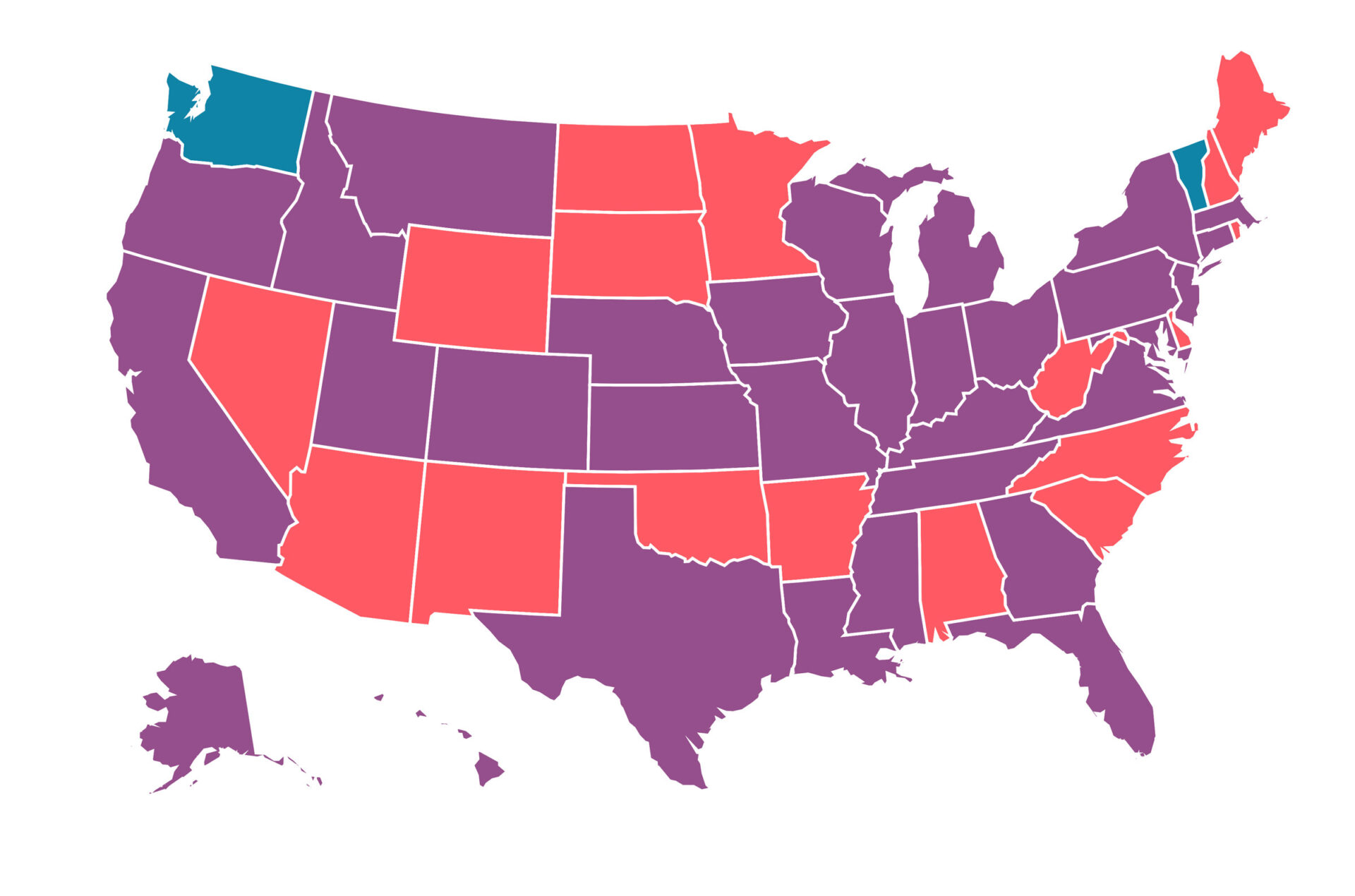
| State | Coughing December 2023 | |
| Wyoming | 1.12 | High |
| New Hampshire | 1.08 | High |
| Arkansas | 1.02 | High |
| Maine | 1.01 | High |
| Delaware | 1.01 | High |
| Rhode Island | 1.01 | High |
| New Mexico | 0.98 | High |
| Nevada | 0.97 | High |
| North Dakota | 0.97 | High |
| South Dakota | 0.96 | High |
| Oklahoma | 0.96 | High |
| West Virginia | 0.95 | High |
| Alabama | 0.94 | High |
| South Carolina | 0.92 | High |
| Arizona | 0.91 | High |
| North Carolina | 0.91 | High |
| Minnesota | 0.90 | High |
| Maryland | 0.90 | Elevated |
| Hawaii | 0.90 | Elevated |
| Florida | 0.90 | Elevated |
| Connecticut | 0.89 | Elevated |
| Georgia | 0.89 | Elevated |
| Missouri | 0.88 | Elevated |
| Texas | 0.88 | Elevated |
| Nebraska | 0.88 | Elevated |
| Indiana | 0.88 | Elevated |
| Tennessee | 0.87 | Elevated |
| Mississippi | 0.87 | Elevated |
| Ohio | 0.87 | Elevated |
| Kansas | 0.87 | Elevated |
| Pennsylvania | 0.86 | Elevated |
| Louisiana | 0.85 | Elevated |
| Iowa | 0.85 | Elevated |
| New Jersey | 0.85 | Elevated |
| Alaska | 0.84 | Elevated |
| Wisconsin | 0.84 | Elevated |
| California | 0.84 | Elevated |
| Kentucky | 0.83 | Elevated |
| Utah | 0.83 | Elevated |
| Massachusetts | 0.82 | Elevated |
| Virginia | 0.82 | Elevated |
| Michigan | 0.81 | Elevated |
| Illinois | 0.81 | Elevated |
| Oregon | 0.80 | Elevated |
| Colorado | 0.77 | Elevated |
| Idaho | 0.77 | Elevated |
| Montana | 0.76 | Elevated |
| New York | 0.75 | Elevated |
| Washington | 0.74 | Normal |
| Vermont | 0.74 | Normal |
For this report, Sleep Cycle ranked highest to lowest coughing based on the average coughing rate which was determined by calculating the mean number of mean coughing events per hour across all recorded sleep hours in each city in the U.S.. To be considered in this analysis, a sleep session needed to exceed two hours.
See real-time cough activity in your area with Cough radar
Cough radar by Sleep Cycle as a feature goes beyond traditional sleep tracking as it incorporates a unique community health awareness aspect by offering useful health insights into our users’ surroundings. It allows users to monitor how coughing affects their sleep and reveals invaluable insights on elevated cough occurrences in the area. Users choose themselves whether they want to opt in to share this data. It is a powerful tool that combines sound analysis data, machine learning algorithms, and geolocation information, anonymously and safely. Think of it as a real-time snapshot of cough activity in various regions.
Make informed decisions knowing the local coughing rate
Cough Radar is a powerful tool because it helps you stay informed and make informed decisions for your sleep and health. Knowing when coughs are on the rise, in your community or from your sleep tracking, allows you to take better care of yourself and follow CDC-recommended guidelines accordingly.
Remember, coughing can be a symptom of many things – a momentary irritant, an underlying condition or a temporary ailment. Our Head of Sleep Science, Mike Gradisar, explains, “If you find coughing is rising in your area – stop and think about the context. Most factors related to coughing are under our control, and your community has learned behaviors in recent years to minimize the spread of colds and flu. Generating facts and having a problem-solving mindset can go a long way to reduce anxieties around coughing.”
If you’re concerned about coughing in your area, book a consultation with your family physician who knows your situation and history best.
How coughing affect your sleep
In the realm of health and wellness, the value of a good night’s sleep cannot be emphasized enough. During the winter season, one of the most common sleep disturbances is coughing. This can create a ripple effect on the quality of your sleep. Frequent interruptions from persistent coughing can prevent you from reaching deep, rejuvenating stages of sleep, leaving you feeling fatigued and less prepared to tackle the day’s challenges. Despite these disruptions, you may not even be aware it’s happening.
Yet, it challenges restful, non-disrupted sleep. As our Head of Sleep Science, Mike Gradisar, explains,
“We go through transitions in sleep depth during the night and move positions in our sleep. For example, you may have remembered falling asleep on your side, but wake up on your back. So when we move positions during the night, our brain is technically awake, but we’re usually terrible at retaining memories of these brief wakings. But when you’re unwell, these are occasions when you’re more likely to cough.”
Is it true that coughing gets worse at night?
Yes and no. The sound of coughing, whether it’s yours or someone else’s, can make it difficult to fall asleep. This challenge is not just due to the noise itself, but also because it raises your awareness and may induce anxiety, making it harder to naturally transition into a peaceful slumber. However, sleep does, in fact, suppress coughing. Mike Gradisar adds, “It’s only when we’re awake that we cough. This is why we see most coughing when people are trying to fall asleep at the start of the night. So in this way, nocturnal coughing can result in a later time to fall asleep.”
Nighttime coughing is often worsened by gravity, as lying down can cause mucus to accumulate in the throat. To counteract this, it’s recommended to sleep with a slightly elevated position and use a pillow for support. This adjustment helps prevent the buildup of mucus in the throat and can alleviate coughing symptoms.
With the unique perspective into the health landscape and cough levels around us, Cough Radar is a powerful tool to stay informed and make informed decisions.If you haven’t already, download the Sleep Cycle app today to start using the Cough Radar feature and take control of your sleep health. Remember, by taking care of yourself, you’re also taking care of your community’s health.
Try Sleep Cycle and Cough Radar today
Medical disclaimer
The contents of this blog post is of general character and intended for informational purposes only. The information is not adapted after individual sleep quality or health status. It does not constitute and is not intended to constitute medical advice, diagnosis, or treatment, and should never replace any advice given by a physician or other qualified healthcare provider. Contact your healthcare provider if you have specific medical needs or require medical advice.



